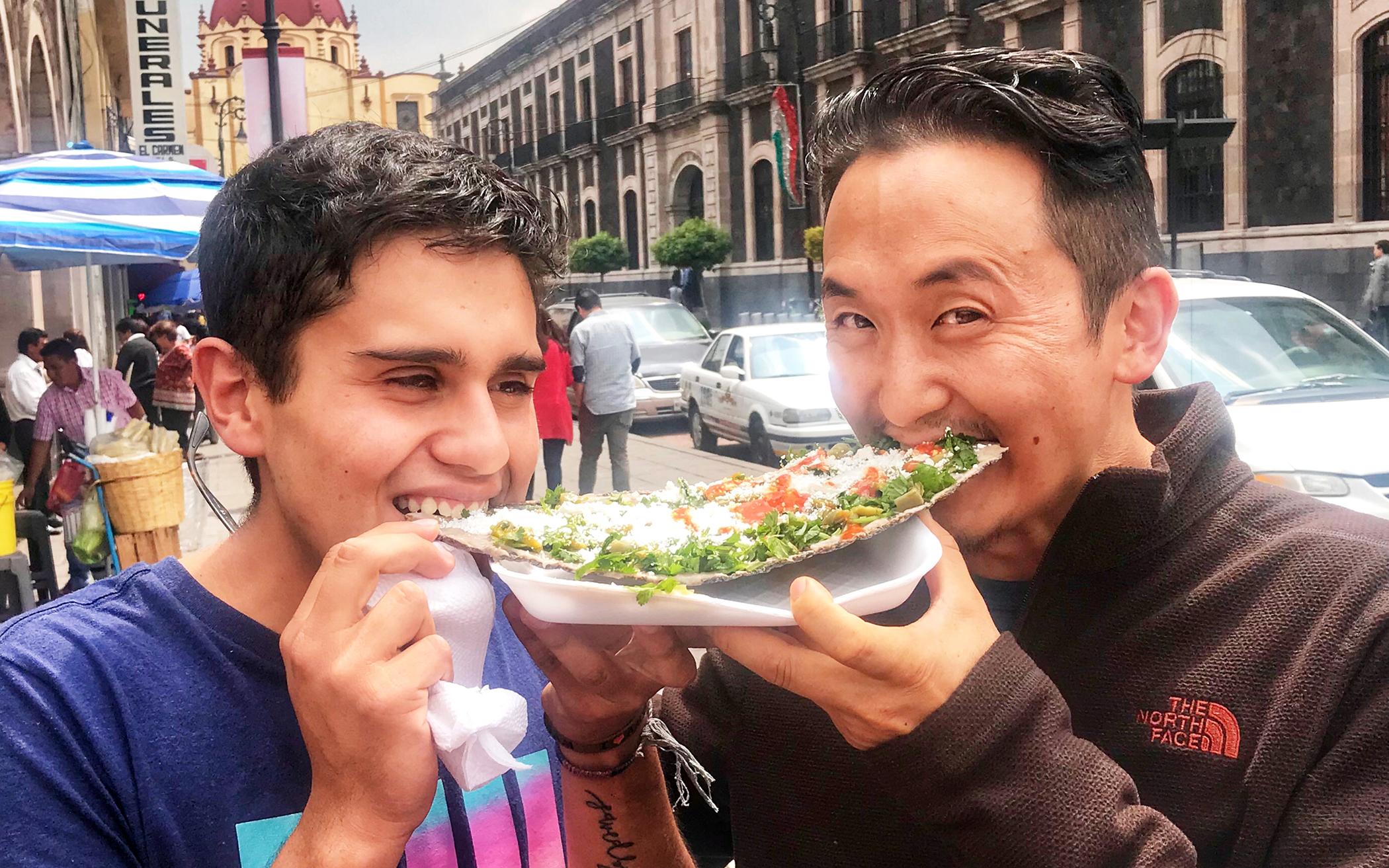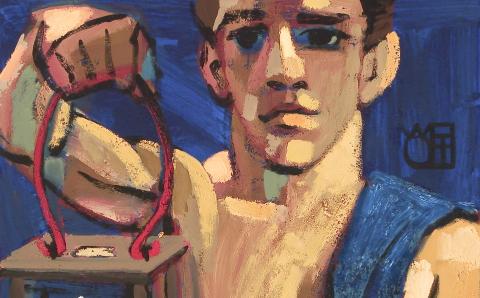How do you share your faith in a world where people are no longer familiar with Christianity—or any god at all?
“Christianity is no longer seen as the center of our culture and society. We’re one voice of many at the table,” said Kevin DeRaaf, Resonate Global Mission’s acting director in Canada. “Historically, we’ve typically gone in from a place of proclamation or telling. Now, in a post-Christian context, it’s one of listening and serving. What does it look like for us to earn the trust and respect and care of others and make them feel like they’re genuinely cared about by us?”
Through ministry shares, Christian Reformed Church congregations work together to share the hope of the gospel with people throughout the world. And as CRC ministry leaders listen and serve, they discover the Holy Spirit at work in people’s lives—even when people might not believe in God.
Post-Christian Is Not a New Challenge
A post-Christian context is not a new ministry challenge for the CRC’s work, especially for CRC campus ministries in Canada and the United States.
“I think it could easily be argued that our CRC campus ministries have, from their start more than 80 years ago, always existed on post-Christian campuses,” said Mark Wallace, Resonate’s campus ministry leader. “The Christian worldviews on campus do not occupy a privileged position over other worldviews.”
In fact, Wallace said that in today’s context, the Christian worldview might be more discounted compared to other beliefs and, over the past few decades, people have become wary of Christians.
“A more prevalent assumption now is if you’re Christian, you’re (intolerant). You’re biased. You’re anti-intellectual. You’re only out to convert me,” said Wallace. “Frequently campus ministers and campus ministries have to justify their existence and prove that they are different than they are assumed to be.”
Graduate Christian Fellowship, a Resonate campus ministry partner at the University of Washington in Seattle, provides a space where academics and Christian faith intertwine. One way they do this is through the Kuyper Fellows program.
“This is a one-year intensive, vocational discipleship program for emerging academics,” said campus minister Ashley Van Dragt. Through reading, research, and mentorship, students explore what it means to be a Christian academic. The program also invites the wider campus to the conversation.
Each year, fellows present on a project they’ve completed throughout the year. This past year, faculty and students from the university’s English department listened to the presentations.
“They asked such lovely questions, and it was grace to us—and I think for them too—to have this thoughtful, honest exchange around faith and learning and vocation,” Van Dragt said. “Each student begins their presentation by sharing their faith journey. … I am hard-pressed to imagine a better way to witness in that candid, here-it-all-is sort of way.”
We Can’t Assume a Shared Story
“Being post-Christian, I think, first and foremost means that increasingly people do not have a world- and lifeview shaped by an understanding of God,” said Kevin Stieva, who serves with the CRC Chaplaincy and Care Ministry and the Canadian Armed Forces. “As a result, they have little understanding of human brokenness and sin.”
Many people throughout the world do not wrestle with the idea of human brokenness that is part of the gospel message, but for deployed soldiers, it can be difficult to grapple with the death, pain, and destruction they encounter. The shame and guilt they might feel can cause them to spiral into depression.
“I had an artillery officer who came back from Afghanistan. He returned with deep regret—I would even say self-loathing,” Stieva said. “With no context of human brokenness, with no understanding of a process of confessing and seeking forgiveness, he came to the point where he was so filled with regret and self-loathing that he contemplated taking his own life.”
Stieva spent two and a half years meeting with this man and walking alongside him in his pain, helping him to process and heal. In a post-Christian society, it can take a long time for someone to accept the grace of Christ, but Stieva and the man came to a point where they prayed and read Scripture together. Stieva was eventually relocated but connected the man with another chaplain to provide encouragement and guidance.
A Variety of Religious Backgrounds
As people move throughout the world, countries that were once predominantly Christian are welcoming people from a variety of religions as well as people who have no spiritual background at all.
“Most of the crew members I interact with come from around the world and come from backgrounds where Christianity is not the foremost religion in their area,” said Michelle DePooter-Francis, who serves with the CRC Chaplaincy and Care Ministry and Ministry to Seafarers at the Port of Montreal.
“I'll often have conversations with seafarers about the things they see when they are sailing, and I will point out my belief that this is part of God’s creation. I approach them in a very non-judgmental way and ask them if what they see corresponds with their faith or belief system.”
DePooter-Francis and other chaplains who serve with CRC Chaplaincy and Care Ministry seek to provide spiritual care to people of all faith backgrounds. During one conversation DePooter-Francis had, a Muslim seafarer shared about his difficulties at home and challenges his wife was facing.
“When I was leaving the ship, he specifically asked me to pray for his wife,” said DePooter-Francis. “His ship returned every month, and our interns and other staff had a chance to get to know him. After several months, there was a personal tragedy at home and we were able to sit with him, grieve with him, and pray with him while he processed the news.”
DePooter-Francis and her team said they could feel God at work during this time through this tangible expression of the gospel.
Never Post-Christian
While Canada, the United States, and many other countries throughout the world might be “post-Christian,” there are still many regions where Christianity, or at least religion, thrives.
“In Mexico, there’s a saying: ‘If you’re born in Mexico, you’re Catholic,’” said Resonate missionary James Lee.
While Catholicism in Mexico is often fused with traditional Aztec beliefs, society is still very religious—except on university campuses. Lee works with Compañerismo Estudiantiles A.C. (Compa), a local campus ministry, but he isn’t allowed to set foot on school grounds.
“Mexico prohibits any religious activity on campus,” said Lee. Instead, he connects with university students through local churches. Lee mentors students one-on-one, prays with them, and provides biblical guidance. He provides much-needed discipleship and support for students trying to navigate being a Christian in an environment that can be indifferent and sometimes hostile toward faith.
Recently a student named Azrael invited classmates to an online game night. They’d been working together on group projects for class, and Azrael suggested they get to know one another and have some fun outside of school work. At the end of the game night, Azrael shared he was a Christian and invited them to a Bible study. One student who participated in a Bible study was raised Catholic, sometimes attending Mass with his parents, but he didn’t take faith seriously. He said he never realized he could personally study God’s Word.
“Students are searching for something more than themselves,” said Lee.
“Although campuses are post-Christian, they are certainly not post-God,” Wallace said. “Our ministries are not going into uncharted territory. We are simply discerning and discovering where God is already at work and joining God in that work.”
As the world continues to change, CRC ministry leaders continue to respond by providing care that people need. They continue to show people where God is at work in their lives and the world around them.
About the Author
Cassie Westrate, Resonate Global Mission







